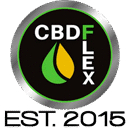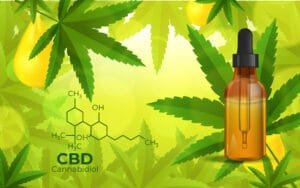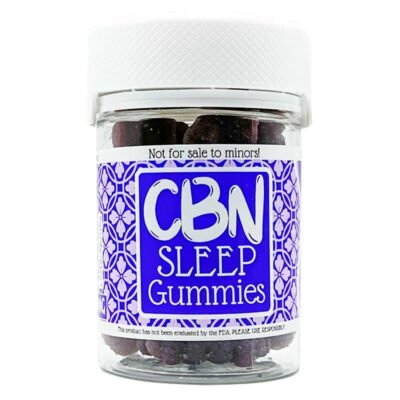Understanding CBD: Full-Spectrum Oil, Broad-Spectrum, and CBD Isolate Explained with 10 FAQs
Introduction to CBD Products In recent years, the popularity of cannabis and its derivatives, particularly cannabidiol (CBD), has surged significantly. This increase in…
Introduction to CBD Products
In recent years, the popularity of cannabis and its derivatives, particularly cannabidiol (CBD), has surged significantly. This increase in consumer interest has led to a diverse array of CBD products available on the market, catering to various preferences and needs. At the forefront of these offerings are three primary types of CBD extracts: full-spectrum oil, broad-spectrum oil, and CBD isolate.
Full-spectrum oil is considered one of the most comprehensive forms of CBD available. It contains the full range of cannabinoids found in the cannabis plant, including trace amounts of tetrahydrocannabinol (THC), flavonoids, and terpenes. This combination is believed to create an “entourage effect,” where the therapeutic benefits of the various compounds enhance one another. Conversely, broad-spectrum oil offers similar benefits but excludes THC altogether, making it a suitable option for those who prefer to avoid this psychoactive component. Lastly, CBD isolate is the purest form of cannabidiol, typically presented as a white powder. It contains 99% CBD with no detectable levels of other cannabinoids or THC, appealing to users seeking high concentrations of cannabidiol without any accompanying compounds.
The growing acceptance and legalization of cannabis have contributed to the expansion of CBD product offerings. These extracts are primarily sought after for their potential health benefits, such as using cbd pain roll on for pain relief, anti-inflammatory properties, and anxiety reduction. As consumers become more informed about their choices, distinguishing between full-spectrum oil, broad-spectrum oil, and CBD isolate allows individuals to select products that align with their goals and comfort levels. This foundational understanding sets the stage for delving deeper into the specifics of each CBD extract type and answering common questions that arise in the context of their use.
What is Full-Spectrum CBD Oil?
Full-spectrum CBD oil is derived from the cannabis plant and contains a wide range of cannabinoids, terpenes, and other beneficial compounds found in the plant. Unlike CBD isolate, which contains only pure cannabidiol, full-spectrum oil retains all the naturally occurring elements, providing a more holistic approach to wellness. This all-encompassing profile is thought to enhance therapeutic effects through a phenomenon known as the “entourage effect,” where the various components work synergistically to elevate the overall benefits of the oil.
The primary component of full-spectrum oil is CBD, but it also includes trace amounts of THC, alongside other cannabinoids such as CBG, CBN, and CBC. It is important to note that the level of THC in full-spectrum CBD oil is typically kept within legal limits, often below 0.3 percent, thereby minimizing any psychoactive effects while still contributing to the overall efficacy of the product. Additionally, terpenes—which give cannabis its distinctive aroma and flavor—are present and are believed to promote various therapeutic effects as well.
Users seeking the potential benefits of full-spectrum oil may experience relief from various ailments, including anxiety, chronic pain, inflammation, and sleep disorders. This comprehensive formulation is designed to interact with the body’s endocannabinoid system, which is responsible for regulating multiple physiological processes such as mood, pain sensation, and immune response. By engaging this system, full-spectrum CBD oil may support homeostasis and overall well-being. Given its rich composition, individuals interested in holistic health solutions often turn to full-spectrum options as part of their wellness regimen. Understanding the characteristics and benefits of full-spectrum CBD oil can help consumers make informed decisions regarding its use.
What is Broad-Spectrum CBD Oil?
Broad-spectrum CBD oil is a unique form of cannabidiol (CBD) that is derived from the hemp plant. It encompasses a wide array of cannabinoids, terpenes, and flavonoids, which are naturally occurring compounds found in cannabis. The prominent distinction between broad-spectrum and full-spectrum oil lies in the absence of tetrahydrocannabinol (THC) in broad-spectrum formulations. Both types undergo similar extraction processes that aim to preserve the beneficial properties of the hemp plant, but broad-spectrum oil specifically undergoes an additional step to eliminate THC while retaining other cannabinoids.
The extraction of broad-spectrum oil typically utilizes methods such as CO2 extraction or ethanol extraction to ensure that a rich profile of cannabinoids is preserved. After extraction, THC is carefully removed through various methods, allowing users to experience the benefits of multiple cannabinoids without the psychoactive effects associated with THC. Consequently, broad-spectrum oil retains a balance of other beneficial compounds, including CBD, cannabichromene (CBC), and cannabigerol (CBG), all of which may contribute to what is termed the “entourage effect.” This phenomenon posits that the various compounds in cannabis can work synergistically to enhance overall therapeutic benefits.
For individuals seeking a THC-free option that still provides a variety of health benefits, broad-spectrum CBD oil offers an appealing alternative. It caters to those who may be subject to drug testing or who have sensitivities to THC. Furthermore, consumers often prefer broad-spectrum formulations for their potential anxiolytic, anti-inflammatory, and analgesic properties, making it a suitable choice for individuals aiming to manage pain or anxiety without the risk of intoxication that can accompany full-spectrum oil. Understanding the nuances of broad-spectrum CBD oil can empower users to make informed choices suited to their personal health needs.
What is CBD Isolate?
CBD isolate is a highly concentrated form of cannabidiol (CBD) that has been purified to remove all other cannabinoids, terpenes, and plant materials. This process results in a crystalline powder that is 99% pure CBD, making it one of the most refined forms of cannabis extracts available. The extraction process typically involves using methods such as CO2 extraction, which separates CBD from the plant material without leaving behind residual solvents.
The primary appeal of CBD isolate lies in its purity. As it contains no other cannabinoids or terpenes, it is an excellent option for individuals seeking to experience the effects of CBD without the psychoactive effects associated with THC. This isolation can be particularly advantageous for individuals sensitive to other cannabinoids or those who undergo drug testing and want to avoid any possibility of testing positive for THC.
In terms of versatility, CBD isolate can be used in a broad range of applications. Its powder form allows it to be easily incorporated into various recipes or products without altering the taste or flavor profile significantly. Many users mix CBD isolate into smoothies, baked goods, or even topical formulations, thereby enjoying its benefits in a personalized manner. Furthermore, manufacturers often utilize CBD isolate in the creation of various CBD-infused products, ranging from tinctures to edibles and cosmetics, allowing for a wide variety of consumption methods while ensuring precise dosing.
Despite its advantages, users should be aware that CBD isolate does not offer the additional benefits provided by the entourage effect, which refers to the synergistic interaction of cannabinoids and terpenes found in full-spectrum oil. Thus, while CBD isolate serves as a powerful option for many, it may not deliver the same comprehensive benefits as products containing a wider array of cannabis compounds.
Comparative Analysis of Full-Spectrum Oil, Broad-Spectrum, and CBD Isolate
As the popularity of CBD products continues to rise, understanding the different types is crucial for informed decision-making. The three primary categories are full-spectrum oil, broad-spectrum, and CBD isolate, each offering unique chemical compositions and potential benefits. Full-spectrum oil contains a wide range of cannabinoids, including CBD, THC (within legal limits), and other beneficial compounds like terpenes and flavonoids. This synergistic combination is often referred to as the “entourage effect,” suggesting that all components work together to enhance the overall therapeutic impact.
In contrast, broad-spectrum products also contain multiple cannabinoids and terpenes but are completely free of THC. This makes broad-spectrum oil an appealing option for those who wish to experience the benefits of various cannabinoids without the psychoactive effects associated with THC. For individuals particularly sensitive to THC or who are subject to drug testing, broad-spectrum products provide a safe alternative that still harnesses some of the plant’s beneficial properties.
CBD isolate, on the other hand, is the purest form of cannabidiol, containing 99% CBD with no other cannabinoids, terpenes, or oils. This product is ideal for those seeking targeted therapeutic benefits from CBD alone, without the potential influence of other compounds. Users might prefer CBD isolate for its neutral taste and versatility in formulations, as it can be easily integrated into various products, including edibles such CBD Gummy Bears and topicals.
When selecting between these options, individuals should consider their specific needs, including any sensitivities to THC, desired effects, and personal preferences. Full-spectrum oil may be suitable for those seeking a comprehensive approach to wellness, while broad-spectrum and isolates offer more tailored solutions. Thus, understanding the distinctions between these CBD variations enhances one’s ability to choose the most effective product for their unique circumstances.
Health Benefits of CBD Products
The growing interest in cannabidiol (CBD) products has led to extensive research on their potential health benefits. Full-spectrum oil, which contains not only CBD but also other cannabinoids, terpenes, and flavonoids found in the cannabis plant, is thought to offer a range of therapeutic effects. One of the primary areas of research is pain relief. Full-spectrum oil may provide an effective alternative to traditional pain relievers, owing to its interaction with the endocannabinoid system. This interaction can potentially reduce inflammation and alleviate chronic pain conditions, making it a topic of considerable interest among those seeking holistic pain management solutions.
Another area where CBD products, including full-spectrum oil, show promise is in the realm of anxiety reduction. Studies have indicated that CBD may help reduce symptoms of social anxiety, generalized anxiety disorder, and post-traumatic stress disorder. The calming effects associated with CBD can help individuals manage their mental health more effectively. It’s worth noting that the presence of other cannabinoids in full-spectrum oil may contribute to its effectiveness, as this formulation is believed to enhance the overall therapeutic profile through the entourage effect.
Additionally, CBD’s anti-inflammatory properties are garnering attention in various fields, including dermatology and rheumatology. Full-spectrum oil may help modulate inflammatory responses, offering benefits for those suffering from conditions like arthritis or acne. As each individual’s body responds differently to CBD, the choice of spectrum—whether full-spectrum, broad-spectrum, or isolate—can significantly influence the resultant health benefits. Selecting a product that aligns with personal health goals is crucial for achieving the desired outcomes. In conclusion, understanding the health benefits attributed to different types of CBD products is essential for informed usage and optimal wellness.
Safety and Legal Considerations
The increasing popularity of CBD products, such as full-spectrum oil, has raised concerns regarding their safety and legal status. Understanding these dimensions is crucial for consumers seeking to incorporate CBD into their wellness routines. Full-spectrum oil, which contains a range of cannabinoids, including THC, offers a synergistic effect, but it is essential to be mindful of potential side effects. Commonly reported side effects include fatigue, diarrhea, changes in appetite, and interactions with other medications.
Individuals considering full-spectrum oil should consult with a healthcare provider, especially if they are taking other prescriptions, as cannabinoids may affect the metabolism of certain drugs. For instance, CBD shows the potential to inhibit cytochrome P450 enzymes, which are critical in drug metabolism. This inhibition can lead to altered concentrations of medications in the body, raising concerns about efficacy and safety.
Legal considerations surrounding CBD vary widely between regions, necessitating awareness of local laws. In the United States, the 2018 Farm Bill legalized hemp-derived CBD containing less than 0.3% THC at the federal level. However, some states impose stricter regulations, so it is crucial for consumers to research the legal status of full-spectrum oil in their specific state or country. Conversely, in countries where cannabis remains illegal, using full-spectrum oil may still pose legal risks.
As a consumer, staying informed about both the safety and legal aspects of full-spectrum oil is essential for informed decision-making. Always ensure that the products you choose are sourced from reputable manufacturers, and look for third-party lab testing results to confirm quality and compliance. By understanding these considerations, users can promote safer consumption practices and enjoy the potential benefits of full-spectrum oil responsibly.
Frequently Asked Questions (FAQs)
As the popularity of CBD products continues to rise, it is not uncommon for consumers to have questions about their specific applications and differences. Below, we provide answers to some of the most frequently asked questions regarding full-spectrum oil, broad-spectrum products, and CBD isolate.
1. How do I choose between full-spectrum, broad-spectrum, and isolate?
Selecting the appropriate type of CBD product largely depends on personal preferences and desired effects. Full-spectrum oil contains a wide range of cannabinoids, terpenes, and other natural compounds from the cannabis plant, which may create an entourage effect. This means that the combined effects of the various components can enhance the therapeutic benefits. Broad-spectrum oil is similar but usually devoid of THC, making it suitable for individuals who want to avoid this specific cannabinoid. CBD isolate, on the other hand, is the most refined form of CBD, containing 99% pure CBD without additional compounds. If you are looking for maximum benefits without any THC, broad-spectrum or isolate might be ideal.
2. Will CBD oil make me high?
No, CBD oil derived from hemp, particularly full-spectrum oil, contains minimal amounts of THC (0.3% or less) and will not produce psychoactive effects. While full-spectrum oil includes these trace amounts of THC, the presence is generally insufficient to induce a high. Users often report feeling relaxed or calm, but this is attributed to CBD’s effects rather than intoxication.
3. Is CBD oil legal?
The legality of CBD oil varies depending on jurisdiction. In the United States, full-spectrum oil derived from hemp is federally legal, thanks to the 2018 Farm Bill. However, states may have their own regulations, and it is essential to check local laws before purchasing or using any CBD product. Always ensure that the product you choose is sourced from legally compliant hemp.
These FAQs address common concerns, assisting consumers in making informed decisions about their CBD choices.
Conclusion
In navigating the diverse landscape of CBD products, it is crucial to comprehend the distinctions among full-spectrum oil, broad-spectrum oil, and CBD isolate. Each has unique characteristics that may cater to different individual health needs and preferences. Full-spectrum oil contains a range of cannabinoids, terpenes, and other beneficial compounds found in the cannabis plant, including trace amounts of THC. This combination is believed to create an “entourage effect”, enhancing the therapeutic potential of the product. For those who seek a more comprehensive profile of cannabinoids, full-spectrum oil may be the most suitable choice.
Broad-spectrum oil shares some similarities with full-spectrum options but differs in that it undergoes additional processing to remove all THC. This makes it an appealing option for individuals who wish to avoid THC altogether while still benefiting from a medley of cannabinoids and terpenes. Conversely, CBD isolate is the purest form of CBD, containing no other cannabinoids or terpenes. This may attract individuals who are solely focused on the benefits of CBD without any of the other compounds present in hemp extract.
Choosing the right CBD product ultimately depends on individual goals and circumstances. It’s essential to evaluate personal health needs, desired effects, and any potential legal restrictions regarding THC consumption. Furthermore, considering factors such as dosage and product source is equally important for achieving desired outcomes. By understanding the unique properties of full-spectrum oil, broad-spectrum oil, and CBD isolate, consumers can make informed decisions that align with their wellness objectives. Whether one opts for the complete range of benefits offered by full-spectrum oil or the purity of isolate, knowledge is a fundamental ally in selecting the optimal product.








 CBD Gummy Bears 900mg (30mg/each) - THC Free & Lab-Tested | CBDFlex
CBD Gummy Bears 900mg (30mg/each) - THC Free & Lab-Tested | CBDFlex  CBN Gummy Grapes 1100mg | Deep Sleep & Insomnia Relief - CBDflex
CBN Gummy Grapes 1100mg | Deep Sleep & Insomnia Relief - CBDflex